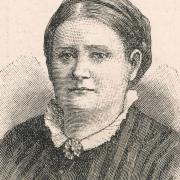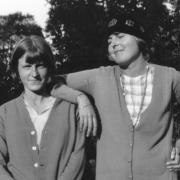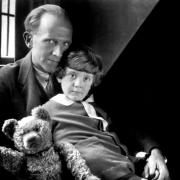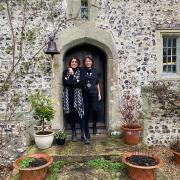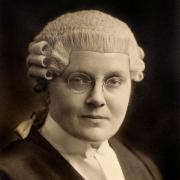Hove’s Maggie Boden is a world authority on artificial intelligence. Alongside numerous other honours, she is one of a handful of women to have been Vice-President of the British Academy. Louise Schweitzer finds a lot of intelligence but no artifice
Maggie Boden was furious recently to be presented with a crossword clue: ‘brain (four letters)’; for which the answer turned out to be ‘mind’. For most of us, that might not seem unreasonable but for a world authority on artificial intelligence, and a pioneering professor of cognitive science, it was heretical.
Maggie’s life has been dedicated to the puzzle of how a physical organ (the brain) controls human personality (the mind). They are different entities: in simple terms, the mind is what the brain does. A more nuanced definition is that the mind is a virtual machine implemented in the brain – an information-processing machine which enables our psychology to function. Her work has been closely involved with the development of AI for which expertise she was recently invited to join an All Party Parliamentary Group as technical advisor on the social implications of robotics and machine-learning.
She has written scores of papers, lectured all over the world and broadcast as the subject of the BBC’s Life Scientific in October 2014. Books include Artificial Intelligence and Natural Man (the world’s first book on AI) in 1977; The Creative Mind – Myths and Mechanisms, 1990; Mind as Machine – a History of Cognitive Science, 2006; and Creativity and Art, 2010. Her latest, published by Oxford University Press in May 2016 and already translated into Chinese and Spanish is AI, Its Nature and Future.
Known formally as Margaret A Boden, OBE, ScD, FBA, she is research professor at the University of Sussex with degrees in medical sciences, philosophy and psychology, including a Harvard PhD, an ScD from Cambridge, and three honorary doctorates. She is a fellow and former vice-president of the British Academy, past chair of the Council of the Royal Institution and elected fellow of the US Association for the Advancement of Artificial Intelligence and its British and European equivalents.
Other honours include lifetime achievement awards from the International Association for Computing and Philosophy and from the International Society for Artificial Life.
Less formally, Maggie is a warm and engaging woman with a penchant for dazzling jewellery and striking purple clothes. Academics in her field are almost entirely men, which has never bothered her in the least. Although she was occasionally irritated to be mistaken for a secretary, wife or assistant, she enjoyed being a radiant personality among the dark suits and always stood out by virtue of an extraordinary intelligence – and a colourful sense of dress. A recent invitation to the white-tie Nobel Prize winners’ dinner in Stockholm concerned her quite as much with what she should wear, as who she might sit next to. Although she would be an obvious candidate for the prize herself, there is no category that exists for her expertise. With her Sussex colleagues, she pioneered degrees in cognitive science with a unique interdisciplinary cocktail of psychology, linguistics, artificial intelligence, neuroscience and philosophy.
Maggie was born in London in 1936, the only child of a self-educated civil servant and a mother who always called her Margaret.
She adored her father, admiring the dedication of his law degree gained through evening classes, but it was her mother who insisted she attend the City of London School for Girls, which creamed off the top students passing the 11+ in Greater London. Inspirational teaching encouraged her love of biology and the natural sciences. She was heading for medicine with a place at UCH when the headmistress suggested Oxbridge. Curious forces were at work. “The Boat Race mattered in those days. I had always supported Cambridge because I love ice blue. I loathe navy.”
Cambridge it was, and, as she describes it, “my life began”. Maggie tore through a three-year medical course in two, entranced by Turing’s paper on morphogenesis and writings on mathematical biology. There was a spare year before clinical training at St Thomas’ which Newnham expected Maggie to spend specialising in neurophysiology. But Maggie had met philosophy, sitting reading Bertrand Russell on the floor of the Charing Cross Road secondhand bookshops and despite all advice to the contrary opted for a year with one of Wittengenstein’s favourite pupils, Margaret Masterman, to read moral sciences. Masterman was one of the first people in the world to attempt machine translation: her work became one of the principles behind knowledge retrieval systems such as the Google search engine. Masterman’s gang was making early attempts in the mechanisation of thought, trying to identify the structural principles which inform learning and language.
Just months into moral sciences, Maggie had a paper published in Mind. Partly because of that she was “amazed – indeed, gobsmacked,” to be offered an assistant lectureship in philosophy at Birmingham University – only told about it only three days before the interviews were due to take place.
“I was very relaxed at the interview – I never thought I’d get the post, and wasn’t sure I even wanted it. But they offered it to me on the spot.” Maggie likes a challenge. She went to Birmingham for two happy and productive years before getting bored and wondering what to do next. St Thomas’ wanted her back, so did Cambridge, but she won a Harkness Fellowship to Harvard to study cognitive and social psychology.
The University of Sussex was a gleam in Maggie’s eye even before she went to America. Chartered in 1961, the new institution was founded with the deliberate aim of interdisciplinary studies. “Everyone wanted to go to Sussex in those days, even turning down places at Oxbridge. There was nothing in my area – my area didn’t exist – but I was already committed to interdisciplinarity.”
When she returned from the US, Maggie was appointed lecturer/reader in philosophy and psychology at Sussex in 1965, posts she held until her professorship in 1980.
Her son Ruskin arrived in 1968 and daughter Jehane in 1972. Maggie recalls the airmailed advance copy of her first book from Harvard which arrived in hospital the day after Jehane’s birth. “Both [of them] were deep purple”, she remembers, with gales of laughter. Initially, she had rented a flat in Brunswick Place, Hove, but she came to rest in Windlesham Road with huge trees in the garden and large, light-filled rooms. Books overflow from the shelves, many written by Maggie alongside their translations in dozens of different languages. Desks are hidden under a rolling tide of papers. There are photographs of friends, colleagues and family, mementoes of the award ceremony at Buckingham Palace for her OBE, together with holiday snaps of Maggie on tropical islands in flowing garments, looking happy and relaxed.
She is wonderful company, dispensing tea, biscuits and jokes, together with a very genuine interest in other people. Although most normal mortals cannot grasp Maggie’s ideas, she pays you the compliment of believing that you might, and discusses on equal terms those issues which fascinated her as a schoolgirl and which continue to inspire her research. “These were the nature and evolution of the mind, the mind-body problem in general and free will and psychopathology in particular. I am intrigued by paranoia, multiple personality, automatisms and hypnosis – and especially puzzled by psychosomatic phenomena such as hysterical paralysis and anaesthesia.”
Listening to Maggie, I begin to have a fragmentary understanding of the principles of AI and a new appreciation of the role that computers play in our lives. Computers are part of our creativity: we made them and they echo – perhaps occasionally replace – certain transformative functions in our mind. Maggie does not believe they will take over. “There’s a lot of rubbish talked about AI. The human mind is still far and away the most complex system and no computer could match our rich subtlety of personal conversation and encounter. But there is no limit in principle to the modelling of human behaviour by computers: the problem for psychology and neuroscience is to understand which questions to ask.”
As well as solo major tomes on philosophy, psychology and AI, she co-authored From Fingers to Digits – Towards a New Aesthetics for MIT (due out next year) and has edited further books. Her style is accessible and humorous, despite the weighty topics under discussion.
Maggie Boden celebrated her 80th birthday last year with a party at a grand Sussex hotel. Guests from every part of her life gathered. A pianist colleague played from her favourite Beethoven sonata, there was jazz, speeches, photographs – and gambling with specially printed bank notes with pictures of Maggie. But there is no way any currency could ever equal Maggie Boden. She is, quite literally, priceless.




